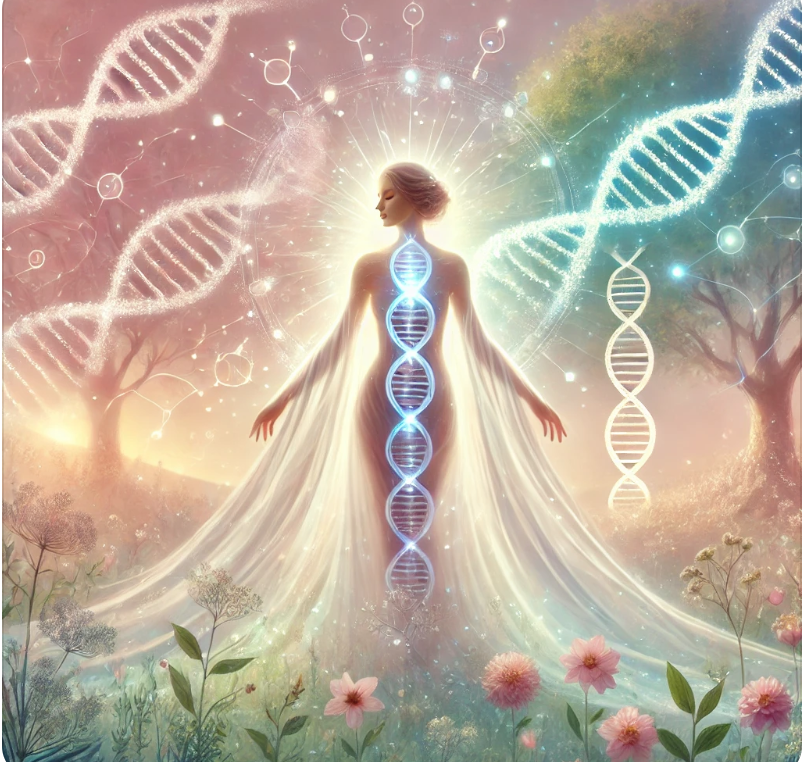Spirit, Sage, Seer
Optimised Life Quiz - Sage and Prophet Quiz - Which one are you?
Prophet or Sage?
This quiz is designed to help you discover which highly renowned prophet or sage from ancient civilizations aligns most closely with your intellectual and spiritual inclinations. The quiz focuses on an analytical and scientific approach to understanding your philosophical outlook, wisdom, and thought processes.
Instructions:
Answer the following questions thoughtfully. At the end, your responses will be matched to one of the prophets or sages from the list of renowned figures in history.
1. How do you approach problem-solving?
a) I rely on logical analysis and reason.
b) I seek intuitive insights and inner wisdom.
c) I consider ethical and moral implications before deciding.
d) I look for patterns and connections that others might miss.
e) I meditate to find clarity before solving a problem.
f) I turn to sacred texts or teachings for guidance.
g) I engage in dialogue with others to explore different perspectives.
h) I analyse the situation with a combination of logic and ethics.
i) I reflect on nature and the natural order to find a solution.
j) I allow my creativity to inspire a unique solution.
2. What is your preferred method of learning?
a) Through rigorous study and examination of texts.
b) By meditative reflection and personal experience.
c) By engaging in dialogue and debate with others.
d) Through observation of nature and experimentation.
e) By intuitive and spiritual practices.
f) By learning from the teachings of enlightened individuals.
g) By asking questions and seeking knowledge from mentors.
h) Through analysing ethical dilemmas and case studies.
i) By seeking direct experience and applying it to daily life.
j) Through creative exploration and innovation.
3. How do you view the concept of truth?
a) As something that can be discovered through logical deduction.
b) As a deep, personal revelation that is often beyond words.
c) As a combination of reason, ethics, and spiritual insight.
d) As a constantly evolving understanding shaped by evidence and experience.
e) As a spiritual reality that can be experienced through enlightenment.
f) As something that can be taught by wise and enlightened teachers.
g) As an ongoing pursuit that involves questioning and exploration.
h) As an ethical standard that guides right action.
i) As an understanding that aligns with the natural order of the universe.
j) As a concept that can be creatively interpreted and applied.
4. When faced with a difficult decision, what guides you?
a) Rational thinking and analysis of pros and cons.
b) My inner sense of what feels right.
c) The impact of my decision on others and the greater good.
d) The data and empirical evidence available to me.
e) Meditation and spiritual guidance.
f) Ancient wisdom and teachings.
g) Dialogue and exchange of ideas with others.
h) A combination of reason and ethical considerations.
i) Reflection on the natural world and its principles.
j) Creative inspiration and innovative thinking.
5. What role do you believe intuition plays in understanding the world?
a) It’s secondary to reason and logic.
b) It’s essential and often provides insights that logic cannot.
c) It’s important but should be balanced with rational thinking.
d) It’s a valuable tool, especially when combined with empirical data.
e) It’s a primary tool for spiritual insight and understanding.
f) It’s a bridge between human understanding and divine wisdom.
g) It’s useful, especially when combined with questioning and dialogue.
h) It should guide ethical decisions when reason alone is insufficient.
i) It’s aligned with the natural rhythms and patterns of the universe.
j) It’s a source of creativity and innovation.
6. How do you relate to others in terms of sharing knowledge?
a) I enjoy teaching and explaining complex ideas.
b) I prefer to guide others toward their own inner wisdom.
c) I value collaborative learning and mutual exchange of ideas.
d) I focus on providing evidence-based information and letting others draw their conclusions.
e) I share knowledge as a spiritual mentor or guide.
f) I use ancient teachings to enlighten others.
g) I encourage questioning and dialogue to deepen understanding.
h) I share knowledge in a way that emphasises ethics and morality.
i) I impart knowledge through stories and parables that reflect the natural world.
j) I inspire others with creative insights and innovative ideas.
7. What is your view on the nature of the universe?
a) It is an intricate system that can be understood through science and reason.
b) It is a mystical entity that requires spiritual understanding.
c) It is a moral and ethical construct that we must navigate wisely.
d) It is a vast, interconnected web that we are only beginning to comprehend.
e) It is a spiritual reality that is beyond ordinary understanding.
f) It is a creation of divine wisdom and order.
g) It is a source of endless questions and mysteries to be explored.
h) It is a realm where ethical principles and natural laws coexist.
i) It is a living organism, full of rhythms and patterns to be observed.
j) It is a canvas for creative expression and exploration.
8. How do you handle contradictions or paradoxes in your thinking?
a) I seek logical resolutions and consistency.
b) I accept them as part of the mystery of existence.
c) I analyse them to find ethical or spiritual balance.
d) I explore them as opportunities to expand my understanding.
e) I meditate on them to find deeper spiritual meaning.
f) I seek wisdom from ancient teachings that address paradoxes.
g) I discuss them with others to gain new perspectives.
h) I consider both sides carefully and seek a middle path.
i) I look to nature for examples of balance and resolution.
j) I embrace them as part of the creative process.
9. What is your ultimate goal in life?
a) To understand the underlying principles of reality.
b) To attain spiritual enlightenment and inner peace.
c) To live a life of wisdom and virtue.
d) To contribute to the advancement of knowledge and human understanding.
e) To transcend the ordinary and experience the divine.
f) To embody and teach ancient wisdom.
g) To engage in a lifelong pursuit of truth and knowledge.
h) To live in harmony with ethical principles and the natural world.
i) To align with the rhythms and patterns of the universe.
j) To create and innovate in ways that inspire others.
10. How do you perceive your relationship with the divine or the universe?
a) As a seeker of truth through knowledge and understanding.
b) As a humble participant in a larger spiritual journey.
c) As a moral and ethical guide who aligns with higher principles.
d) As a curious explorer seeking to unravel the mysteries of existence.
e) As a vessel for divine inspiration and spiritual wisdom.
f) As a student and teacher of ancient truths.
g) As a philosopher constantly questioning and exploring.
h) As a steward of ethical principles and natural laws.
i) As a harmonious being in tune with the natural world.
j) As an artist or creator inspired by the divine.
Results:
Tally up the responses and match them with the corresponding prophet or sage:
Thales of Miletus: Mostly a
Pythagoras: Mostly b
Hypatia of Alexandria: Mostly c
Confucius: Mostly d
Laozi: Mostly e
Socrates: Mostly f
Siddhartha Gautama (The Buddha): Mostly g
Zeno of Citium: Mostly h
Diotima of Mantinea: Mostly i
Plotinus: Mostly j
Each answer corresponds to a different sage or prophet, reflecting different philosophical and spiritual perspectives. The results guide you toward the figure whose teachings and approach to life most closely align with your responses.
Results:
1. Thales of Miletus (c. 624/623 – c. 548/545 BC)
Attributes: Rational, Analytical, Scientific
Profile: Thales is often recognised as the first philosopher in the Western tradition and one of the Seven Sages of Greece. He approached the world with a rational and scientific mindset, seeking natural explanations for the phenomena around him. If you are matched with Thales, you likely value logical thinking and empirical evidence in your quest for understanding.
2. Pythagoras (c. 570 – c. 495 BC)
Attributes: Mathematical, Mystical, Harmonious
Profile: Pythagoras is known for his contributions to mathematics and his belief in the mystical significance of numbers. He founded a religious movement that combined rigorous intellectual inquiry with spiritual practices. If you are aligned with Pythagoras, you likely see the world through both a scientific and spiritual lens, appreciating the harmony in the universe.
3. Hypatia of Alexandria (c. 360 – 415 AD)
Attributes: Scholarly, Intellectual, Independent
Profile: Hypatia was a renowned philosopher, mathematician, and astronomer in ancient Alexandria. She was a teacher and a symbol of intellectual integrity and pursuit of knowledge. If you are matched with Hypatia, you likely possess a strong intellect, value education, and are committed to the pursuit of truth.
4. Confucius (551–479 BC)
Attributes: Ethical, Moral, Wise
Profile: Confucius was a Chinese philosopher and politician known for his teachings on ethics, morality, and social harmony. His philosophy emphasises the importance of family, social order, and the cultivation of virtue. If you align with Confucius, you are likely guided by strong ethical principles and a desire to create harmony and order in your surroundings.
5. Laozi (6th century BC)
Attributes: Mystical, Intuitive, Harmonious
Profile: Laozi is the founder of Taoism and the author of the "Tao Te Ching," a foundational text of Taoist philosophy. His teachings focus on living in harmony with the Tao (the Way), which is the natural order of the universe. If you align with Laozi, you likely value intuition, simplicity, and living in harmony with nature.
6. Socrates (470/469 – 399 BC)
Attributes: Inquisitive, Ethical, Dialectical
Profile: Socrates is one of the most influential philosophers in Western history, known for his method of questioning and dialogue to uncover truth and wisdom. If you are matched with Socrates, you likely value critical thinking, ethical reasoning, and the pursuit of knowledge through dialogue and self-examination.
7. Siddhartha Gautama (The Buddha) (c. 563/480 – c. 483/400 BC)
Attributes: Enlightened, Compassionate, Meditative
Profile: Siddhartha Gautama, known as the Buddha, was the founder of Buddhism and taught the path to enlightenment through meditation, ethical living, and wisdom. If you align with the Buddha, you likely seek inner peace, spiritual enlightenment, and a compassionate understanding of the world.
8. Zeno of Citium (c. 334 – c. 262 BC)
Attributes: Stoic, Rational, Resilient
Profile: Zeno of Citium founded Stoicism, a school of philosophy that teaches the development of self-control and fortitude as a means to overcome destructive emotions. If you are aligned with Zeno, you likely value rational thinking, resilience in the face of adversity, and living in accordance with nature.
9. Diotima of Mantinea (5th century BC)
Attributes: Mystical, Philosophical, Teacher of Love
Profile: Diotima is a figure in Plato's dialogues, particularly in the "Symposium," where she teaches Socrates about the nature of love. If you align with Diotima, you likely seek a deeper understanding of love, beauty, and the mystical aspects of life, blending philosophical inquiry with spiritual insight.
10. Plotinus (c. 204/5–270 AD)
Attributes: Metaphysical, Contemplative, Philosophical
Profile: Plotinus was a major philosopher of the ancient world who founded Neoplatonism. He focused on the nature of the soul and its relationship to the One, the ultimate reality. If you align with Plotinus, you likely value deep metaphysical contemplation and seek to understand the divine aspects of existence.



